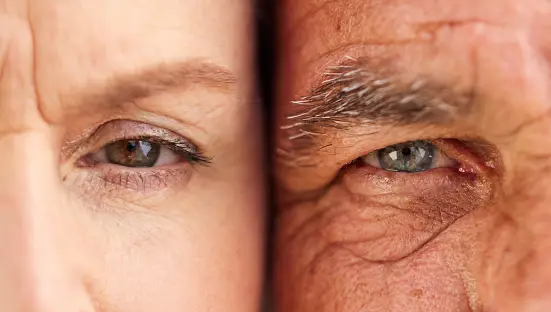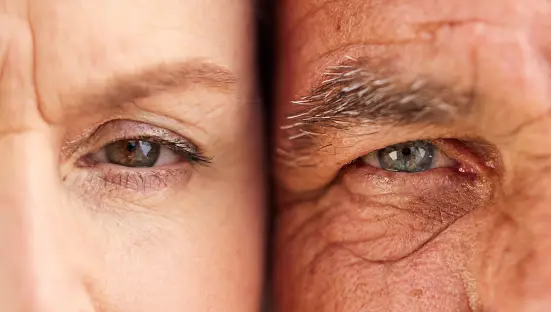To Rest or Not To Rest

In our fast-paced, modern world, an increasing number of people are finding it challenging to get a restful night’s sleep. This trend is concerning, as adequate sleep is crucial for overall health and well-being. Numerous factors contribute to this widespread issue, ranging from lifestyle choices to environmental factors and underlying health conditions.
One of the primary reasons behind the difficulty in sleeping is the prevalence of electronic devices in our lives. The blue light emitted by smartphones, tablets, and computers can disrupt the production of melatonin, a hormone that regulates sleep-wake cycles. This interference can make it harder to fall asleep and reduce the overall quality of sleep.
Additionally, the pressures of daily life, such as work-related stress, financial worries, and family responsibilities, can contribute to sleep disturbances. These stressors can lead to racing thoughts and anxiety, making it difficult to relax and drift off to sleep.
Another significant factor is the impact of irregular sleep schedules. Many people struggle with maintaining a consistent bedtime and wake-up time, which can disrupt the body’s internal clock, known as the circadian rhythm. This disruption can lead to difficulty falling asleep, waking up frequently at night, and feeling tired and groggy during the day.
Furthermore, environmental factors such as noise, light, and temperature can also affect sleep quality. Excessive noise from traffic, neighbors, or electronic devices can disrupt sleep, while a bedroom that is too bright or too hot can make it challenging to fall asleep and stay asleep.
The consequences of inadequate sleep are far-reaching and can negatively impact both physical and mental health. Chronic sleep deprivation has been linked to an increased risk of obesity, heart disease, diabetes, and depression. It can also impair cognitive function, memory, and decision-making skills, affecting overall productivity and quality of life.
To address the issue of poor sleep, it is essential to prioritize healthy sleep habits, also known as sleep hygiene. This includes maintaining a regular sleep schedule, creating a relaxing bedtime routine, and creating a comfortable sleep environment. Limiting exposure to electronic devices before bed and managing stress levels can also help improve sleep quality.
As We Age…
Your sleep patterns naturally change, and many older adults experience difficulties with restless sleep. No one is exempt from this. These changes can be attributed to various factors, including changes in sleep architecture, health conditions, medications, and lifestyle habits. Understanding how aging affects sleep and implementing strategies to improve sleep quality can help older adults enjoy more restful nights.
How Aging Affects Restless Sleep
Changes in Sleep Architecture
As we age, the amount of deep sleep (slow-wave sleep) tends to decrease, ahttps://springfieldhospice.com/about/nd the frequency of awakenings during the night increases. This can lead to a feeling of restless sleep and less overall sleep satisfaction.
Health Conditions
Older adults are more likely to experience health conditions that can disrupt sleep, such as arthritis, heart disease, and respiratory disorders. These conditions can cause pain, discomfort, or difficulty breathing, making it challenging to fall asleep or stay asleep.
Medications
Many older adults take medications for various health conditions, and some of these medications can have side effects that affect sleep. For example, certain medications may cause drowsiness during the day or increase the frequency of nighttime awakenings.
Changes in Circadian Rhythm
The circadian rhythm, or the body’s internal clock that regulates sleep-wake cycles, may shift as we age. This can result in earlier bedtimes and wake times, which may not align with societal expectations or desired sleep schedules.
Lifestyle Factors
Factors such as diet, exercise, and daily routines can impact sleep quality. Older adults may be more susceptible to disruptions in these areas, affecting their ability to get restful sleep.
Tips to Improve Restless Sleep in Older Adults
When it comes to aging and sleeplessness, there are several things you should avoid to improve your sleep quality. First, avoid consuming caffeine, alcohol, or heavy meals close to bedtime, as these can disrupt your sleep. Second, try not to take long naps during the day, as they can interfere with your ability to fall asleep at night. Third, avoid using electronic devices with screens before bed, as the blue light can suppress melatonin production and make it harder to fall asleep. Lastly, try not to rely on sleeping pills or sedatives to help you sleep, as they can be habit-forming and may not address the underlying causes of your sleep problems. Instead, focus on establishing a regular sleep routine and creating a relaxing sleep environment to improve your sleep quality naturally.
Maintain a Consistent Sleep Schedule
Go to bed and wake up simultaneously every day, even on weekends. This helps regulate your body’s internal clock and can improve the quality of your sleep.
Create a Relaxing Bedtime Routine
Establish a calming routine before bed, such as reading a book, taking a warm bath, or practicing relaxation techniques like meditation or deep breathing exercises. This can signal to your body that it’s time to wind down and prepare for sleep.
Create a Comfortable Sleep Environment
Ensure your bedroom is conducive to sleep by keeping it cool, dark, and quiet. Use earplugs or a white noise machine to block out disruptive sounds.
Limit Exposure to Electronic Devices
The blue light emitted by smartphones, tablets, and computers can interfere with melatonin production and disrupt sleep. Avoid using these devices for at least an hour before bed.
Exercise Regularly
Engaging in regular physical activity can improve sleep quality and help you fall asleep faster. Aim for at least 30 minutes of moderate exercise most days of the week, but avoid vigorous exercise close to bedtime.
Watch Your Diet
Avoid heavy meals, caffeine, and alcohol close to bedtime, as these can disrupt sleep. Opt for lighter, healthier snacks if you’re hungry before bed.
Manage Stress
Stress and anxiety can interfere with sleep. Practice stress-reducing techniques such as yoga, mindfulness meditation, or progressive muscle relaxation to help calm your mind before bed.
Address Underlying Health Conditions
If you have a health condition that is impacting your sleep, such as arthritis or sleep apnea, work with your healthcare provider to manage the condition and improve your sleep.
Review Medications
If you suspect your medications are affecting your sleep, talk to your healthcare provider. They may be able to adjust your medication or recommend alternative treatments.
Consider Cognitive Behavioral Therapy for Insomnia (CBT-I)
CBT-I is a structured program that helps people identify and replace thoughts and behaviors that cause or worsen sleep problems with habits that promote sound sleep. It can be particularly effective for older adults.


Good Sleep Not Hard To Come By
Restless sleep is a common issue for many older adults, influenced by various factors such as changes in sleep architecture, health conditions, medications, and lifestyle habits. Understanding these factors is crucial for implementing effective strategies to improve sleep quality.
By maintaining a consistent sleep schedule, creating a relaxing bedtime routine, and optimizing the sleep environment, older adults can enhance their chances of getting a restful night’s sleep. Additionally, limiting exposure to electronic devices, engaging in regular physical activity, and managing stress can further improve sleep quality.
Older adults need to address underlying health conditions and review medications with healthcare providers to minimize their impact on sleep. Considering cognitive behavioral therapy for insomnia (CBT-I) can also be beneficial for managing sleep disturbances.
Overall, prioritizing good sleep hygiene and making lifestyle adjustments can significantly improve sleep quality for older adults. By addressing restless sleep, older adults can enjoy better overall health and quality of life.







